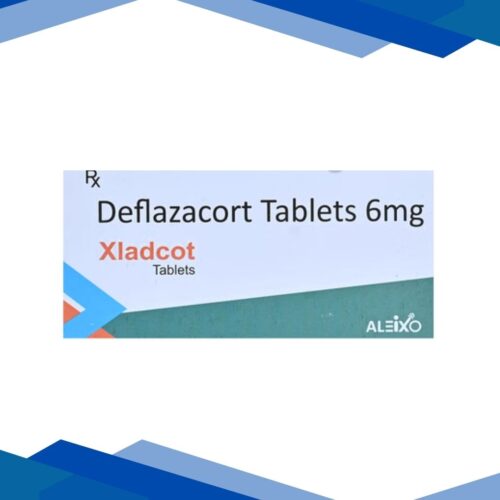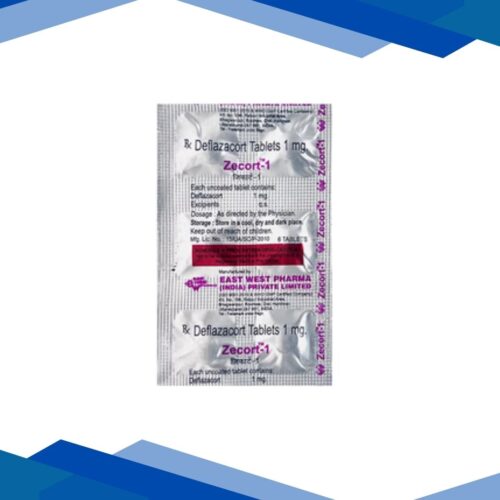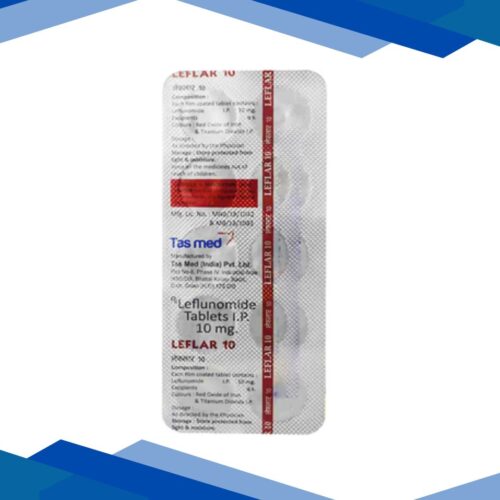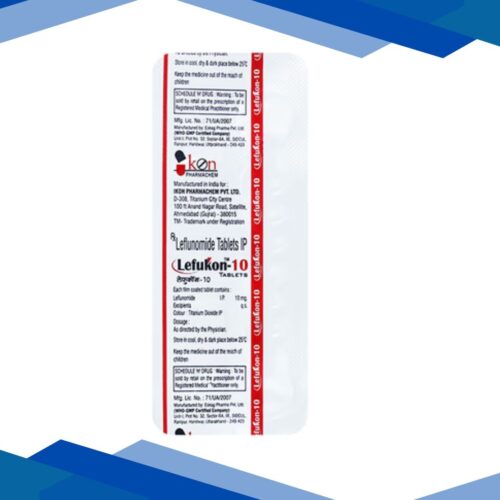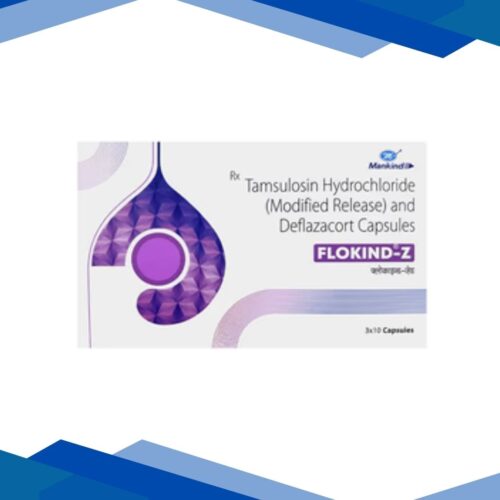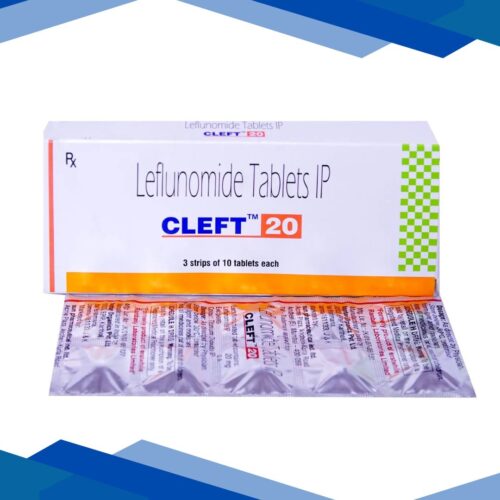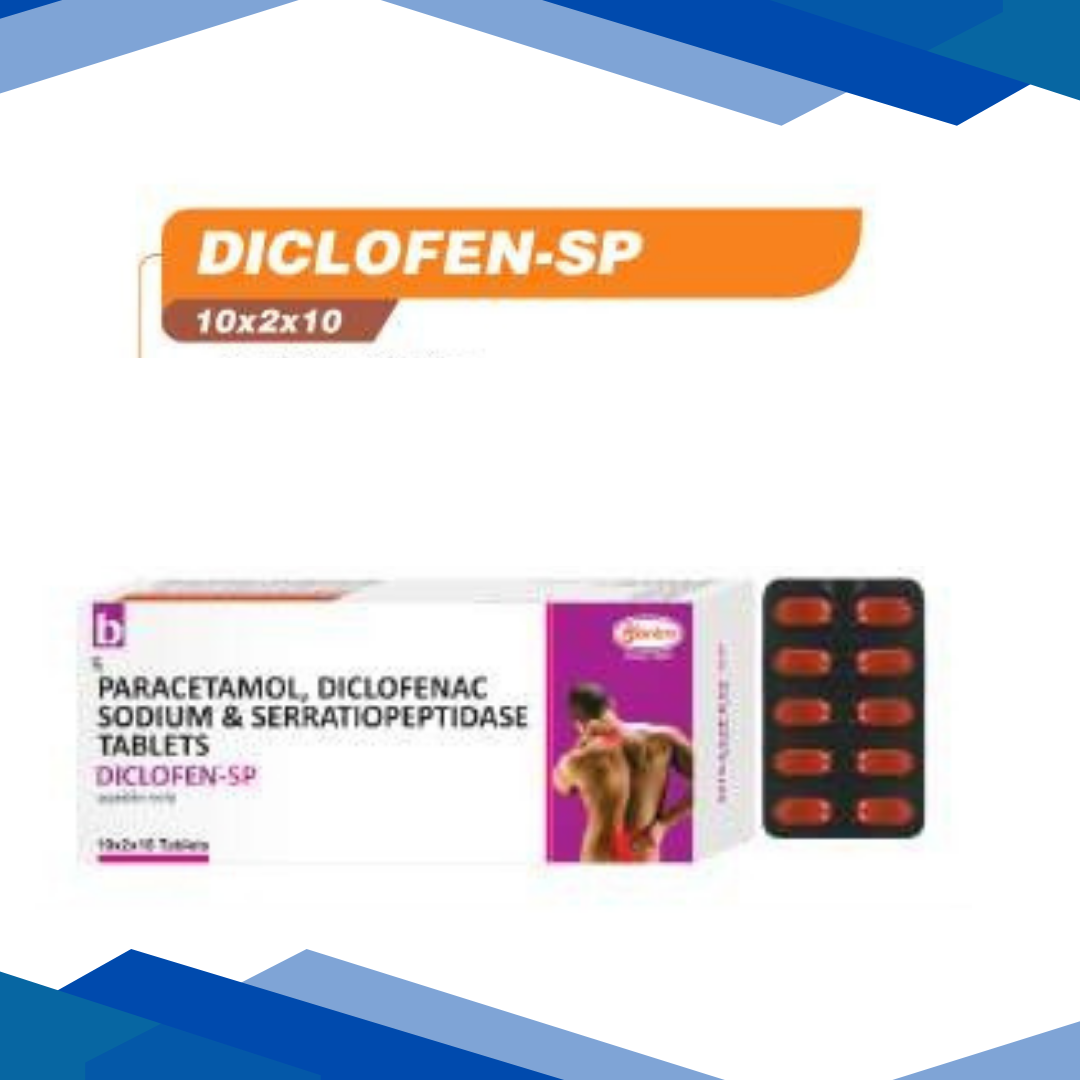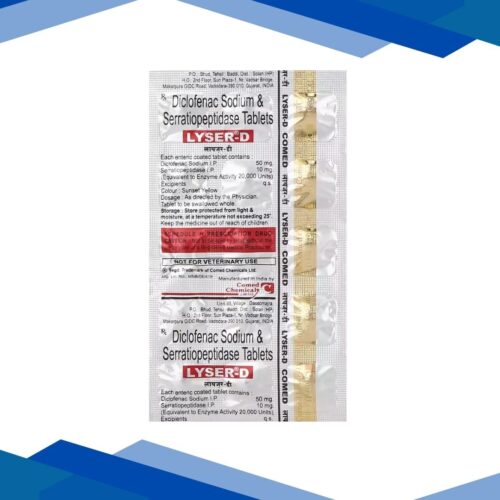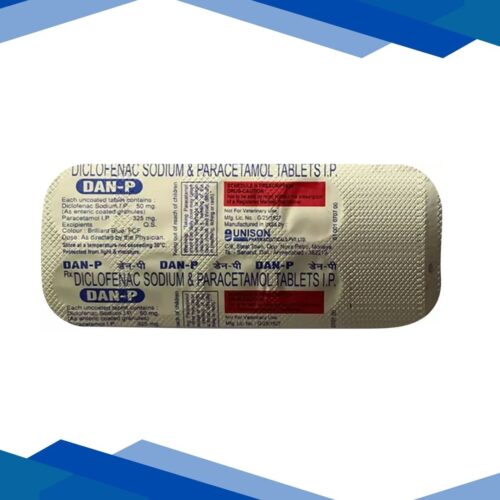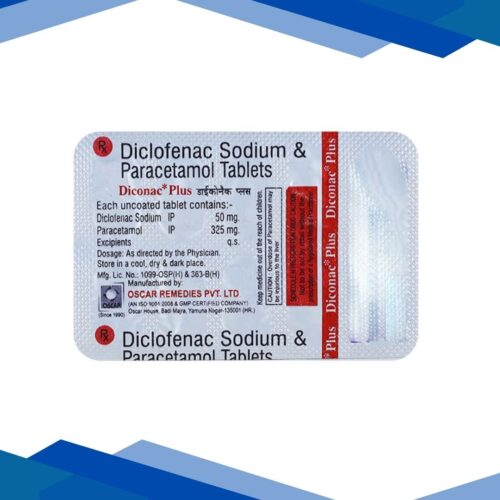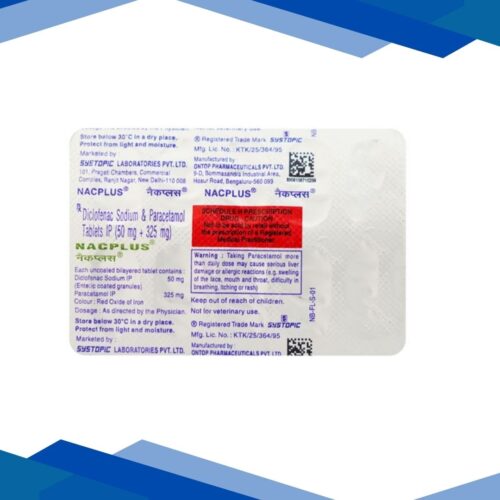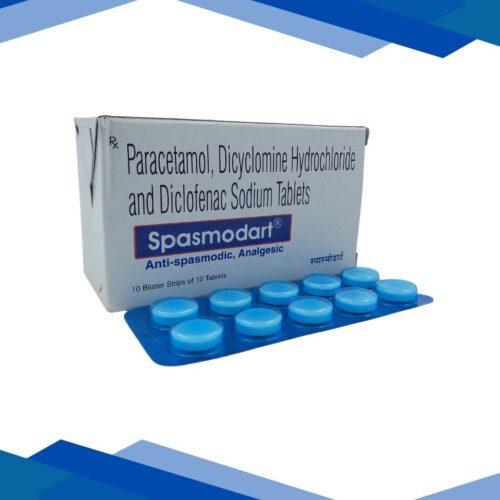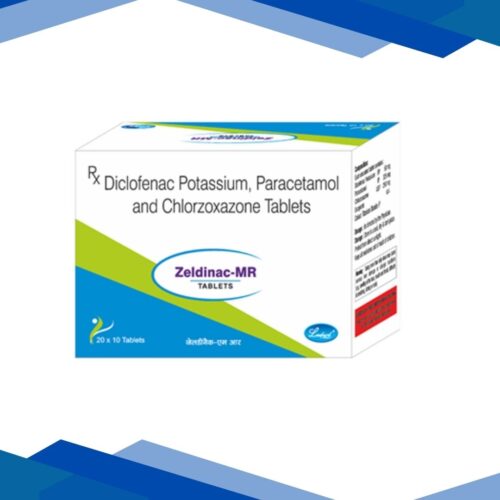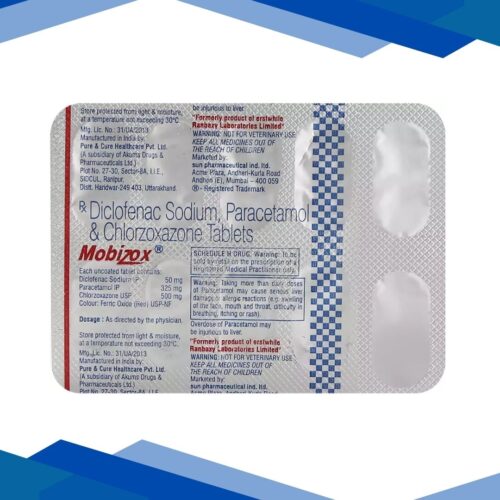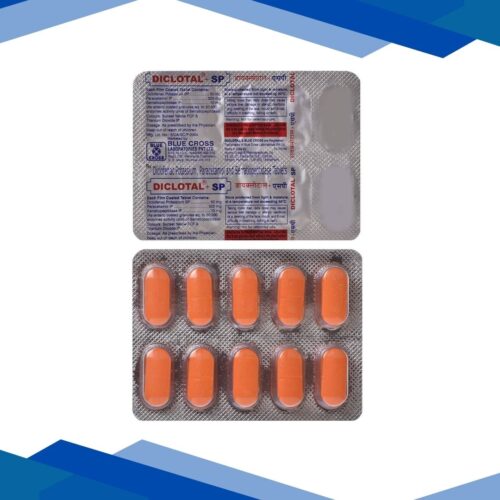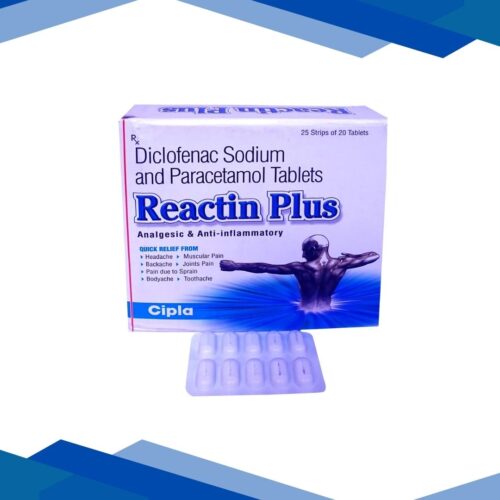FLOKIND Z Capsule 10’s
Diclofen Sp
No Prescription yet? Don’t worry! Click Here to Get Online Consultation
Why Prescription is Required?
✅ Providing Right Medicines
Prescriptions are complex documents. We proofread and recheck at various steps to provide you the right medication in the correct form and dose.
⚖️ Helps Comply with the Law
Most medicines cannot be sold without a valid prescription, as per the Drugs and Cosmetics Act, 1940 and Rules, 1945.
Book Appointment with Doctor
Diclofen Sp Tablet is used to relieve pain and inflammation in conditions like osteoarthritis, rheumatoid arthritis, and ankylosing spondylitis. Besides this, it also helps treat muscle pain, tooth pain during dental surgery, menstrual cramps, ear pain, and migraine headaches. Pain is a symptom triggered by the nervous system, causing uncomfortable sensations in the body.
Diclofenac
Diclofenac
OVERVIEW
Diclofenac is a nonsteroidal anti-inflammatory drug (NSAID) used to treat mild-to-moderate pain
CLASSIFICATION
Anti-inflammatory drug (NSAID)
USES
Diclofenac is used for pain relief. It relieves pain in conditions like headache, mild migraine, muscle pain, dental pain, rheumatoid arthritis, ankylosing spondylitis, osteoarthritis, or painful menses.
HOW IT WORKS
It works by blocking the release of certain chemical messengers that cause pain and inflammation (redness and swelling)
DOSAGE
As directed by the physician
PRECAUTIONS
Before taking this drug, patients should keep the following points in mind:
The patient must tell the doctor if he/she is allergic to diclofenac, aspirin, NSAIDs (naproxen, ibuprofen, celecoxib) or any other drugs.
Inform the doctor about the medical history, particularly: asthma (having a history of shortness of breath after taking NSAIDs or aspirin), coagulation or bleeding problems, cardiac issues (such as a previous heart attack), liver disease, nasal polyps, intestinal or stomach problems.
It can cause kidney damage when used for prolonged periods. In the case of any existing kidney issues, the chances of kidney failure can increase with diclofenac consumption.
Inform the doctor about previous surgeries and drug prescriptions.
Do not drive after consuming this drug as it can cause dizziness and drowsiness.
It can cause stomach bleeding, and the risk can increase with the use of tobacco and alcohol.
Older people are at a high risk of intestinal and stomach bleeding, heart attack, and stroke when consuming this drug.
If you have high blood pressure or experience water retention, it’s crucial to inform your doctor before starting diclofenac. Adding an NSAID to your regimen can place extra strain on your heart, especially if it’s already working hard.
If you’ve had a prior ulcer or gastrointestinal bleeding, it’s advisable to consult your doctor before using diclofenac, as your risk for another bleeding episode is elevated.
For individuals with kidney issues or those taking diuretics (water pills), diclofenac use can potentially affect the kidneys’ ability to expel excess fluids. Discuss with your healthcare provider whether diclofenac is suitable for your situation.
If you have asthma and are sensitive to aspirin, there’s a possibility of a severe reaction to diclofenac. Prior to using this medication, it’s essential to have a conversation with your doctor.
SIDE EFFECTS
Nausea
Headache
Dizziness
Vomiting
Flatulence
Constipation
Diarrhea
Abdominal pain
Dyspepsia
Gastrointestinal bleeding
Gastrointestinal ulcer
Rash
Application site irritation
Injection site pain
DISCLAIMER
This content is for informational purposes only. Always consult a healthcare provider for medical advice and proper dosage.
Paracetamol
PARACETAMOL
Overview
Paracetamol is a commonly used medication that helps relieve mild to moderate pain and reduce fever. It’s often used for:
Headaches
Toothaches
Muscle and back pain
Menstrual cramps
Cold and flu symptoms
It’s available over-the-counter and is considered safe when used as directed.
Classification
Analgesic and antipyretic agent
Uses
Paracetamol is used for pain relief and fever. It is used to relieve pain in conditions like headache, muscle pain, or dental pain.
How it works
When you produce a fever, your body’s internal thermostat — found in the hypothalamus portion of the brain — is raised to a higher temperature. This new set point is usually induced by pyrogens (substances made during infections) that tell the body to produce more heat as a form of immune defense.
Due to its effects in the brain, paracetamol reduces the production of reactive prostaglandins. Prostaglandins are disease-fighting chemicals released during infection that in turn, raise the body’s temperature set point. By decreasing prostaglandin levels, paracetamol enables the hypothalamus’ temperature control centre to bring the body’s temperature back down to normal, allowing the body to cool down and the fever to subside
Dosage
As directed by the physician
Precautions
Most people can take paracetamol safely, including:
pregnant women
breastfeeding women
children over 2 months of age – lower doses are recommended for young children
always get advice before taking paracetamol if you:
have liver or kidney problems
have problems with alcohol, like long-term alcohol misuse
are very underweight
are taking other medications
Don’t take paracetamol if you’ve had an allergic reaction to it in the past
Side effects
common side effects of paracetamol.
Nausea
Swelling
Vomiting
Pain
Tenderness in the upper abdomen
Sweating
Loss of appetite
Stomach cramps
Diarrhea
Major side effects are as follows:
Dark-colored urine
High fever
Lower backache
Skin having red spots
Rashes
Inflammation
Itching
Sore throat
Ulcers
Breathlessness
Yellowish eyes
Disclaimer
This content is for informational purposes only. Always consult a healthcare provider for medical advice and proper dosage.
Serratiopeptidase
SERRATIOPEPTIDASE
OVERVIEW
Serratiopeptidase helps the body break down proteins, thereby reducing inflammation
CLASSIFICATION
Non-steroidal anti-inflammatory drug’ (NSAID)
USES
Serrapeptase is promoted as an anti-inflammatory and mucolytic agent, but efficacy for either use has not been well established. Two randomized controlled trials reported no reduction in swelling caused by sprained ankles, and results of studies evaluating use for pain and swelling after dental surgery are conflicting. Two clinical trials evaluating serrapeptase as a mucolytic agent also reported conflicting results. Serrapeptase has also been investigated for adjunctive use to antibiotics to enhance antibiotic activity; however, evidence is limited to 2 low-quality clinical studies
HOW IT WORKS
The specialty of Serrapeptase is it breaks down non-living proteins inside the human body. Non-living tissues are there in the body only when there is inflammation, swelling, or clogging. Serrapeptase geo-targets such sites in the body and reduces inflammation.
DOSAGE
As directed by the physician
PRECAUTIONS
Pregnancy and breastfeeding: There’s not enough research yet to know if serrapeptase is safe during pregnancy or while nursing. So, to be cautious, it’s best to avoid using it during these times.
Bleeding disorders: Serrapeptase may affect how your blood clots. If you have a bleeding condition, it could make things worse. It’s important to talk to your doctor before taking it.
Before surgery: Since serrapeptase can affect blood clotting, there’s a risk it could lead to more bleeding during or after surgery. Be sure to let your doctor know if you’re taking it, especially if you have surgery planned
SIDE EFFECT
There are several side effects of taking Serrapeptase, such as –
Skin irritation or dermatitis
Erythema or rashes
Joint pain
Nausea
Cough
Blood clotting disturbance
Poor appetite
Muscle pain
DISCLAIMER
This content is for informational purposes only. Always consult a healthcare provider for medical advice and proper dosage
